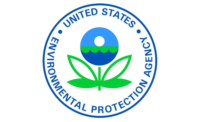 1 - Poor Fire Protection Protocol
1 - Poor Fire Protection Protocol
Oilfields are huge fire hazards with tight quarters and plenty of fuel. Have a plan in place to immediately deal with any fire and to ensure that all workers are accounted for. In areas where exits may be difficult, fire alarms and suppression systems must be in place and tested regularly. Employees should be given basic firefighting training and equipment, such as fire extinguishers, to be able to ensure their own safety and the safety of others. They should also be taught to evacuate to a safe distance once there is no longer a threat to life.
2 - Disorganized Work Environment
A well-organized work site shows an attention to detail that likely will carry over to being mindful of safety protocols. In addition to instilling a safe mindset, promoting an organized work environment might protect employees from needless accidents --. slipping on wet floors, not seeing a hazard under poor lighting, or having discarded debris catch on fire.
3 - Poorly Maintained Tools and Equipment
Poorly maintained tools themselves can pose a safety hazard. Tools with broken or fractured handles may break during use and cause debris to strike a worker. A ladder that is in poor condition could fail as a worker climbs with heavy items. More importantly, if workers don’t care for the tools they use every day, this can indicate a pattern of other safety steps being overlooked.
4 - Lack of Safety Equipment
Safety equipment not being provided is a huge sign that an oilfield doesn't care about safety standards. If the equipment is provided but not being used, it is a sign that workers aren't trying to keep safe. Workers bear some responsibility for ensuring their own safety, but employers are also responsible for ensuring that they have been adequately trained and supervised so that they do follow safety protocols.
5 - No Records of Accidents
All accidents should be carefully documented. This ensures that workers receive proper treatment and managers can identify areas with recurring accidents so those trends can be reversed. Accident records are required to be kept by law, and failing to keep proper records could be used to argue that the employer is covering up an unsafe work environment.
Source: Mike Davis Personal Injury Law Blog on Lawyers.com
To learn more about oil safety standards, protecting your workers, and minimizing the chances of a lawsuit, contact the oilfield accident lawyers at Slack & Davis www.slackdavis.com, principal office: Austin, TX; 800-455-8686; 512-795-8686.



